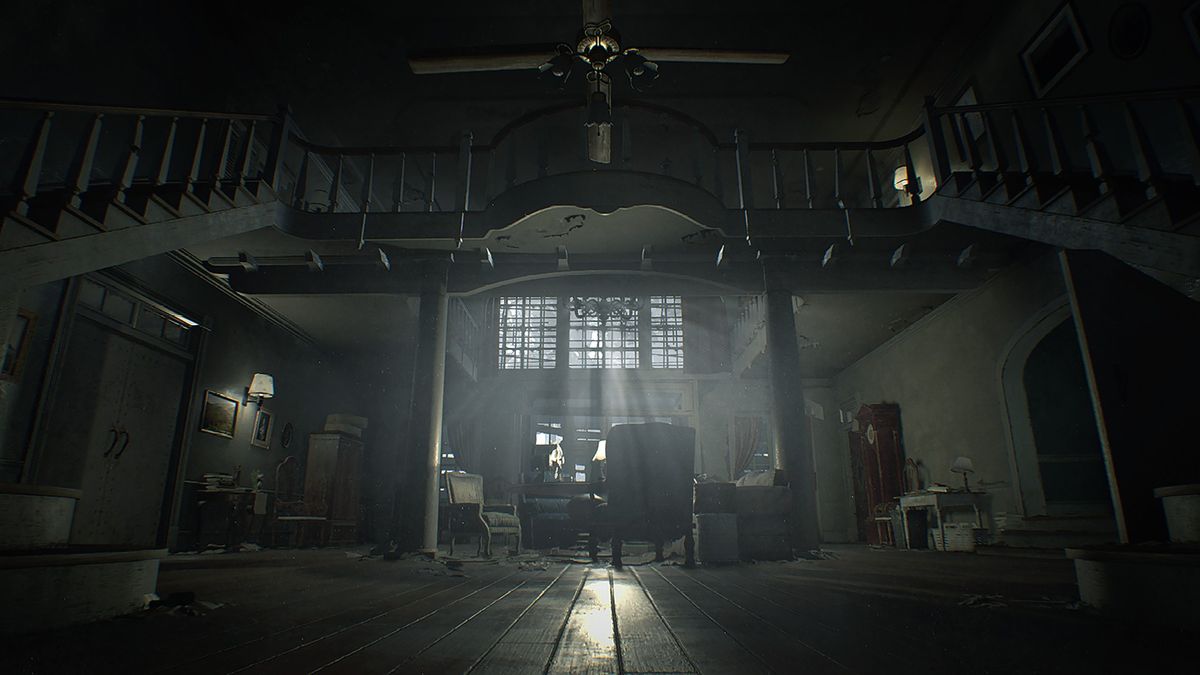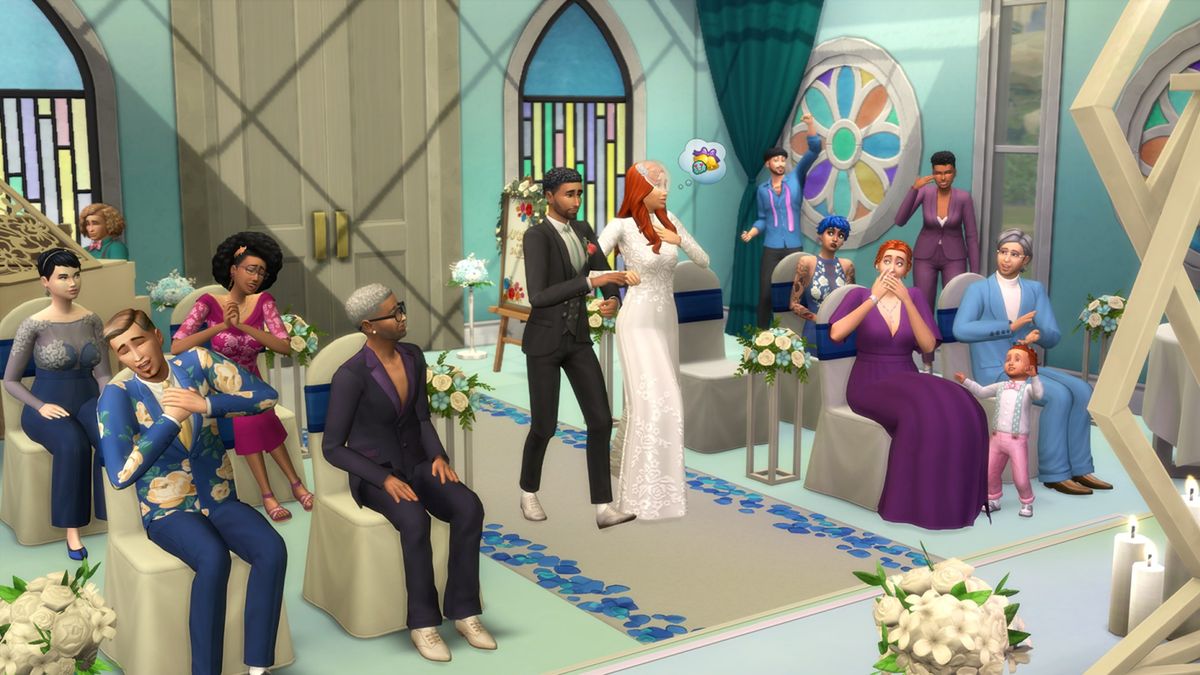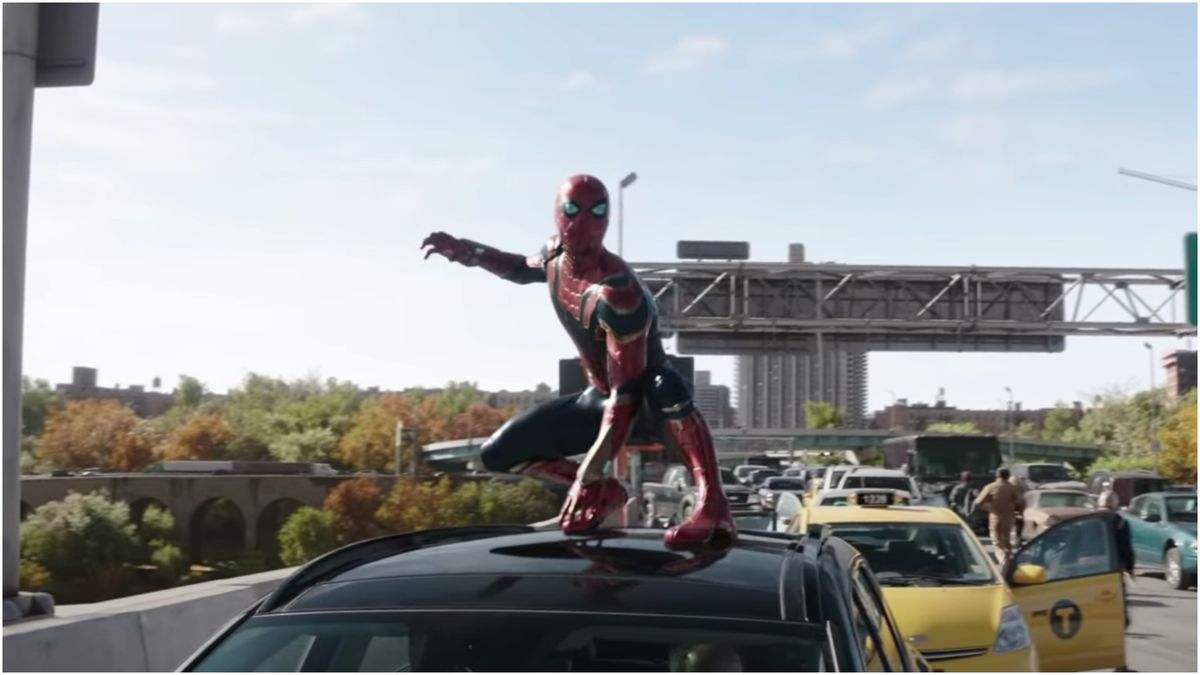Sean Cregan has been carving his name out at the premier purveyor of “biohazard noir”. His latest sci fi thriller, The Razor Gate, out next week in paperback, and we have a chat with him

A few years back, British crime writer John Rickards ( Winter’s End , The Touch Of Ghosts ) chose a new pen name, Sean Rickard, and embarked on a new parallel career as a writer of (as he puts it) “no-cyber cyberpunk biohazard noir thrillers, such as The Levels and All You Leave Behind . His latest novel, The Razor Gate , is out in paperback next week, 9 September.
You describe your Sean Cregan output as biohazard noir. Is that a phrase you coined yourself and what do you mean by it?
“It’s not mine, as it goes. Steve Mosby (writer of Black Flowers , etc) used the term on Twitter when describing the books to Simon Logan (Katya from the punk band) a year or two back, but I liked it and stole it. I’ve always taken it to mean the books are set in a sort of grimy, primarily urban world in which the ordinary poor end up suffering from the effects of the scientific effluent of the rich, and in which few people are ever entirely good, in particular, or entirely bad. Not that the books are relentlessly bleak and depressing, just that the bright spots form like stray clusters of flowers in the cracks of fields of concrete; they’re smaller, more personal and individual, but they stand out more than they would otherwise if the backdrop wasn’t so outwardly short on them”
Are your Cregan books primarily SF or thrillers or crime novels?
“Most people seem to assume they’re very near-future SF, which I can certainly understand (though there are no dates in them anywhere, so where this notion comes from I don’t know). I originally wanted to write cyberpunk – the sometimes bizarre urban environments, the street level mythology and almost fractal patterns of history and cultural Balkanisation within tiny communities – without the “cyber” part, so their formative inspiration was certainly from the SF side. The end result, I suppose, is almost urban fantasy without the magic/monsters. It’s weird, but in theory it could be real
They’re certainly not crime, though, not in any traditional sense – there’s no criminal mystery at play, and seeking justice (whether lawful or through old fashioned vengeance) isn’t really a key need for many of the characters in them. I saw a review of The Levels complaining that the reader had guessed that the main villain was going to turn out to be the main villain early on. I couldn’t help thinking, ‘What tipped you off? Was it that he was a higher-up in a shady-to-the-point-of-cliché corporate entity? Was it that he had one eye, Bad Guy white hair and was, in all ways, a total cock from the get-go? Or was it that he kicks off by blackmailing one of the main characters into working for him because otherwise she’ll die? Clever spot, Sherlock.’ People are weird. Not that there aren’t plenty of genuine things you could pull The Levels apart for – there are, and I know most of them. That one just baffled me. It’s probably a good thing I cut his opera cape and twirly moustache in an earlier draft.”
What was the kicking off point for The Razor Gate? The original spark of an idea?
“I got to wondering what you’d do if you knew you had one year to live. Not in a, ‘Sorry Mr Jones, I’m afraid it’s cancer,’ kind of way, but knowing specifically that you’d die on day x, 12 months from now. No sickness or long deterioration beforehand, just alive alive alive, dead. Here’s your cut off date, now how are you going to handle that news and what are you going to do with your 12 months? And then, what if it’s not just you, but hundreds like you, all knowing their time was so limited? The reasons why – and how – such a thing could happen, and the ways these people, nicknamed ‘Clocks’ in the book, would deal with it (or not deal with it) spun off into everything else”
Who are the main characters in the book?
“The first is Maya Cassinelli, a disgraced ex-journalist who sees an old boyfriend blown up by one of these Clocks in a suicide bombing and ends up trying to find out why it happened and what’s behind ‘the Curse of Willow Heights’, the thing that supposedly kills these people after a year. She grew up with her father in the part of town where events end up leading, a sort of permanent floating refugee settlement called Blackwater Port.
“The second’s Charlie Garrett, who was originally a detective working on the Curse – a pretty doomed case that the authorities are no nearer solving and which they have had to keep secret to avoid mass panic – but who fell in love with one of the victims he was tasked with interviewing. As his need to keep her alive and find a cure has taken over his life he’s been repeatedly busted downwards and is a short step from being kicked out of the department altogether at the time the story starts. His girlfriend, Emi, has two weeks left to live”
What do think you bring to the genre that’s unique and different and “Cregan”? What’s your calling card?
“Nothing. My work is a thin tissue of plagiarism and I would have gotten away with it if it weren’t for you meddling interviewers! In all seriousness, I don’t know. There are a lot of good writers out there who bring a lot to the table and I don’t know if or where I’d slot in, and everyone’s style is individual so different that it gets hard to say.
“Most people reading the books – the ones who like them, anyway, those cultured, sexually attractive and intelligent pillars of humanity – seem to pick up on the environments and the communities in them, the sense that they’re functional, living places with a depth of shared history and a lot of nuance to the way their societies behave – no simple ‘poor people good, rich people bad’ or ‘poor people all criminal scum’ tar-brushing. I’d like to think that’s true, though it’s largely an illusion; if you’re going to care about these people and these places, they have to seem real, to connect with what we know are the complexities and sheer mundanity of everyday life (which holds true even in the most peculiar of circumstances), but the amount of thought-out world building I do is very low. They’re movie lots, held up with wooden props at the back. But then if it’s a good illusion, job’s done.
What influences the book more? New Scientist or the newspapers?
“Probably the New Scientist ; even though the books are only a step or two removed from the contemporary world, I don’t generally base anything on particular real-world events – even the really weird ‘this would make an unbelievable story’ ones”
Who are your SF influences?
“First and foremost, William Gibson. Yes it’s an obvious pick, and yes he’s one of the godfathers of the old cyberpunk movement, but his grasp of prose and the quality of his writing are second to none. Absolutely awesome writer. Charlie Stross – not so much the whackier world of the Laundry novels, but Glasshouse and Accelerando in particular. Richard Morgan. China Mieville – again, not so much for the Bas Lag books, but his others and The City And The City in particular. Warren Ellis – I’ve never written anything as madcap as Transmetropolitan , but it remains probably my favourite comic series ever (along with the glistening wonder that was Nextwave ). Brian Wood. And it’s a long way from the kind of stuff I normally write, but I’ve loved Rick Remender’s Tales Of The Fear Agent since it first started. Then I suppose, to finish off what’s already an odd grab-bag of a list, there’s also movies like The Thing , Ghostbusters and Dark City ”
Are you fascinated with cities and they way people function within them and interact with them?
“In a sense, yes. Not so much cities as a whole, but then no one actually lives in a whole city: they live in their neighbourhood, which can sometimes be very, very different to one a few blocks away. Local customs and solutions spring up to account for peculiarities of geography or social pressure, sometimes short-lived, sometimes persisting long after whatever it was caused them has vanished. My favourites lie at the extreme ends of the spectrum: Kowloon Walled City in Hong Kong (I defy anyone not to be fascinated by Lambot & Girard’s stellar photo-history and day-in-the-life book on the place before it was torn down, City Of Darkness ), the ‘mole people’ of New York and underground Las Vegas, to planned ‘science cities’ like Tsukuba and the spectacular now-derelict company towns like Gunkanjima.
What have you got against cats?
“Ha! My fiancee has three of them, which I’ve now acquired by-proxy. So far they’ve nearly broken my laptop, coughed up hairballs on my son’s toys and when I’m working on the sofa late at night, one of them (called, amusingly, Brains despite the fact he remains steadfastly uneaten by zombies) usually announces his presence by clawing me lovingly in the neck. And for this, I have to feed them their rancid food every day and shovel their shit out of the litter tray.
“The prosecution rests, Your Honour.”
If Uwe Boll wanted to buy the movie rights, would you pocket the money and run, or hold out for Spielberg?
“Unless it was a choice between taking the money or selling a kidney, I’d set light to the rights contract and mail the ashes back. If I could sell one of Boll’s kidneys instead, that would be a bonus.
“On the other hand, Spielberg’s unlikely with this kind of story, so maybe I should just take my paycheque and shut the hell up. Boll’s movies somehow continue to get made, so that’s a step up from most things that get optioned I guess.”
How did you pick the pen name Sean Cregan?
“It could have been my name in an alternate universe if my great-great granddad hadn’t been either a murderer or a bigamist. My dad’s family were the Cregans, a generation out of Ireland and living in Birmingham, until one day they upped sticks suddenly and moved to London, arriving as the Rickards family. My great-great granddad had been married, but there’s no record of anything to do with his first wife after they left Brum and headed south (my dad’s a family history buff, so I take his word on this), and he remarried in London. Either he changed his name so he could remarry without first divorcing and her records have just disappeared, or else he killed his wife and did a runner. My dad’s great-aunt was the last one to know the truth and she died without giving much of it away (suggesting that it probably was murder, but there we go). Sean’s just an alternate form of John.
“And it sounds pretty good. Authorial. Thrilling. Murderous. Looks good on a book jacket.”
What’s your personal bug bear – the thing that makes you cringe – about thrillers or SF novels?
“In bad ones? Usually either the stock main characters – almost entirely rugged Sam Fisher/Jack Bauer types, with or without a criminal past, or else thinly-veiled Mary Sues of the author – or else the stakes. It’s always the whole world/universe/humanity/US at risk if Stubble McChin/Feisty McBoobs doesn’t punch a lot of guys in the face/eyestalks/cybernetic death appendages.
“Actual genuine stakes, where the individual has something at risk that they, and by extension the readers, care about don’t need to be, in fact probably can’t be, so large, but they require the writer to have written characters that the reader can invest emotionally in in order for them to matter (as an example from movieland, Moon does this excellently; as I thought, albeit slightly differently, did Zombieland ).
“I’m aware that opinion is heavily divided on this, but I didn’t like the second two thirds of The Pasage , for instance, because I couldn’t give a rat’s arse about the faux-settler crowd at all. Loved the first third (aside from the psychic nun), though, because I cared about Wolgast and Amy, and the coming apocalypse had meaning because it affected individuals. ‘Look!’ screamed the second part of the book. ‘All humanity could be gone and maybe these are the last people left! Oh noes!’ Doesn’t matter how big and bad it all is, because I don’t care if these people get eaten in their sleep or not.
“In a book that’s good, though, I don’t actually mind schlock. Heath Hudson in the aforementioned Fear Agent is pastiche Stubble McChin, but I’ll happily run along for the ride because the story’s extremely good fun, well-told and Remender gives him a surprising amount of depth while also allowing having him punch people in the face. Which he does a lot. Same deal with Nathan Drake in the Uncharted games. Silly if you look too close, but I’ll suspend my disbelief for fun done well quite happily. Those examples clearly don’t take themselves too seriously, though. Someone writes Die Hard but acts like it’s Dostoyevsky, well, that’s just stupid.
“… I’m aware that I’m probably guilty of everything I’ve just said myself.”
What’s next for Sean Cregan?
“That’s a very good question. I’m currently about a third of the way through writing a YA alien apocalypse book, because teenagers are apparently an infinite well of money which should be tapped by as many writers as possible. It was a bit galling to see the first trailer for Fazlling Skies about two weeks after I’d started working on it, but happily that’s taken a very different direction and hopefully it’ll be long forgotten if and when this book ever makes it out. While all of humanity is at risk in it, there’s no McChin or McBoobs character. I hope. Not too much of one, anyway.
“As well as that, there’s a near-finished novel set in the same world as both the earlier books still kicking around, set largely in the slums of Manila and about finding a child in a vast, abandoned commercial district that floods every high tide and which is full of toxic dust that slowly drives you mad if you breathe too much of it. Lovely stuff, if it ever sees the light of day (and nothing says ‘That sounds awesome! I want to read that!’ like buying a couple of hundred copies of The Razor Gates each. Just, you know, something for you to bear in mind).
“I may also be selling kidneys on eBay.”
Thank you, Sean Cregan.
The Razor Gate is published on 9 September from Headline.
 Game News Video Games Reviews & News
Game News Video Games Reviews & News



